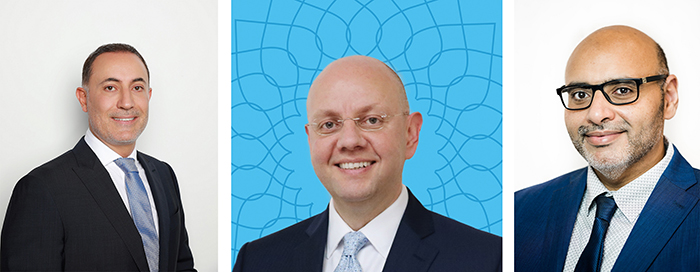Vision loss is one of the most serious complications of uncontrolled diabetes. As many people may be unaware that they have diabetes until serious symptoms show, diabetes remains a serious health risk across the community, especially as over 15% of the UAE population suffers from diabetes. This is a reason why Moorfields Eye Hospital Dubai always highlights the importance of regular vision screening for you and your loved ones.
Diabetes is a chronic disease and lifelong condition in which the absence or low levels of the hormone insulin, causes abnormally high levels of blood sugar in the body, damaging vital organs. According to the International Diabetes Federation (IDF), 463 million people have diabetes in the world and 55 million people in the MENA Region; by 2045 this figure will rise to 108 million.
People living with the condition still face the daily challenge of managing their lifestyle to control their blood sugar levels and avoid serious complications. Many people in the community will already have diabetes but be unaware of this until symptoms show, which may be too late for effective prevention of serious complications such as diabetic retinopathy, which can lead to blindness.
Dr Ammar Safar, Medical Director and Consultant Vitreoretinal Surgeon, notes that: “1 in 3 people who are diabetic develop some form of vision loss due to conditions such as diabetic retinopathy, glaucoma and cataract during their lifetime.”
“Vision loss is one of the most common and frightening complications of diabetes but this can be prevented. Annual eye examinations to look for early signs of diabetic retinopathy along with good diabetic and blood pressure control can prevent vision loss. Research has also shown that regular physical activity helps to reduce the risk of a range of diseases and health conditions, including diabetes, and improves the overall quality of life,” comments Dr Avi Gurbaxani, Chief of Retina Service, Consultant in Medical Retina, Uveitis and Cataract.
Dr Luisa Sastre, Consultant Medical Retina and Cataract Surgeon adds: “Once diagnosed, families need to try and build a healthy lifestyle and environment that includes a good diet with plenty of exercise for all family members, in order to help those suffering from it, the ability to manage the condition.”
Given that people with diabetes may be twice as likely to develop glaucoma (a chronic eye disease in which increased pressure in the eye can lead to optic nerve damage resulting in gradual loss of vision), as are non-diabetics, according to Dr Salman Waqar, Consultant Adult Glaucoma and Cataract Surgeon: “Early detection and prompt treatment of glaucoma is essential to preserve vision. An ongoing and strong support system surrounding you can make all the difference in living a fulfilling life despite glaucoma.”
Dr Mohamed Sayed, Consultant Ophthalmic Surgeon specialised in Cataract and Glaucoma in Adults and Children states: “It is also important to remind the community that such conditions are not only prevalent in adults, as diabetes related eye concerns in children and conditions such as peadiatric glaucoma may impact a child’s life, if not detected and treated at a young age.”
Diabetes is one of the key factors that result in the development of cataracts. People with diabetes are not just more likely to develop cataracts, but they are likely to develop them at a younger age and have them progress. Dr. Imad Hakim, consultant Ophthalmologist in Cataracts and Refractive vision correction surgery emphasises: “ It is important to keep an eye on changes in vision and if any changes are noticed, visiting an eye specialist is the first step a patient needs to make.”
Commenting on the importance of World Diabetes Day, Dr. Ammar Safar, said: “The good news is that the UAE is doing very well at creating public awareness of the risk of diabetes and World Diabetes Day helps to get this message into the community and the workplace. People living with diabetes need to control their condition very carefully through lifestyle adjustments and regular monitoring in order to avoid serious complications such as Diabetic Retinopathy. The other good news is that with new advances in treatment, vision loss caused by the effects of diabetes on the retina can be treated and even restored, if diagnosed early.”
Moorfields recommends regular eye screening from an early age, and annual eye examinations for all people with diabetes, regardless of whether there are vision symptoms or not. More frequent eye examinations are needed if the patient has active Diabetic Retinopathy that may require treatment.


COMMENTS